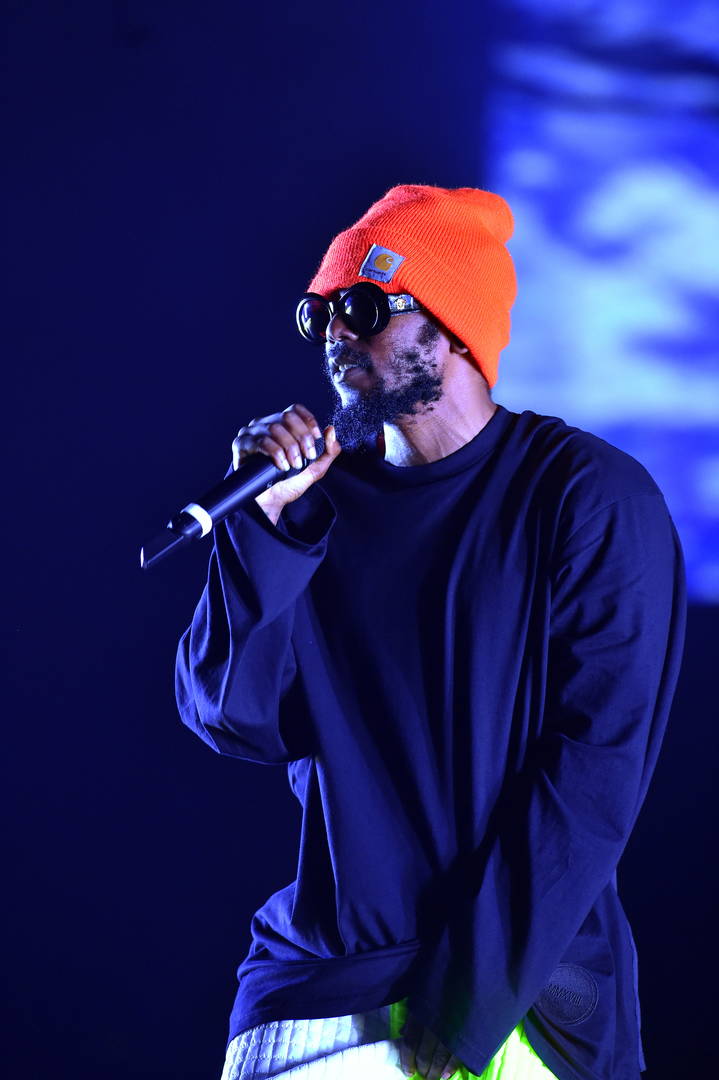

“God himself would say you f***ng failed. You ain’t try.”
Art and music connoisseurs have crafted countless thinkpieces, articles, and dissertations attempting to uncover the depths of Kendrick Lamar’s To Pimp A Butterfly. Spotify’s The Big Hit Show was gifted the honor of conversing with the legendary musicians responsible for the album’s conception, offering a glimpse into the nearly immeasurable layers the project has to offer.
On February 16th, The Big Hit Show released an episode titled “Hello Kendrick” – a nearly hour long explication of the inner workings of Kendrick Lamar’s mind prior to recording and releasing TPAB. A multitude of perspectives were present throughout, as collaborators and longtime friends detailed the nature of this creation. While the numerous sonic inspirations were illuminated through in-depth analysis, a single focal point of the documentation stood out: the dark, vast emptiness that comes with becoming a star.
Alex Pappademas, host of The Big Hit Show, shifted the core of the conversation from Kendrick reaching his zenith with the track “King Kunta,” to the internal turmoil, plaguing and eating away at him in the harrowing piece titled “U”:
“To Pimp a Butterfly is musically fearless– the work of somebody who’s as fired-up creatively as he’s ever been. But on an even deeper level it’s a work born from a place of crisis and confusion. It’s Kendrick wrestling with temptation and survivors’ guilt and the knowledge that people want something more from the best rapper alive than just raps.”
Pappademas went on to introduce the song in summation, before many of Kendrick’s collaborators began peeling the bandages from the stitched, yet still very much open wound. “In a series of interludes on this album Kendrick reads a poem that mentions waking up screaming in a hotel room. In 2015 he confirmed to NPR that this really happened. “The feeling,” he said, was, ‘How am I influencing so many people on this stage rather than influencing the ones that I have back home?'”
Audibly revisiting the site of the proverbial war was Dave Free, Kendrick’s longtime manager and brother in arms. Citing survivor’s guilt as the perpetually lingering spectre haunting many Compton natives, he detailed a specific situation that thrust Kendrick into a one-on-one conversation with the reaper: “That trauma is so deep and so thick to this day. It’s never-ending, you know? Yeah. Cause there was always something happening. It was just, “How close are you to that individual that it happened to?'”
He continues, speaking on their close friend Chad Keaton, who in 2013 lost his life to gun violence while Kendrick Lamar was touring the country and cementing his superstar status. “Chad was a really hard one for Kendrick. It was really hard for him because Chad was younger than us. The little bro. And we talked to him…we were supposed to go see him, and we didn’t even get to see him, but we talked to him on FaceTime. I remember. I’ll never forget it. He FaceTimed me .. And we were on the bus talking to him, and we were telling him, “Bro, we’re about to come back and see you. We’re going to try to cut this run short and get back to you,” and we didn’t make it back to see him before he passed.”
Jason Keaton, older brother of Chad, was sentenced to serve a term in prison as Kendrick Lamar began his ascent in the soundsphere. He asked Kendrick to promise him one thing before making it big: just look out for his lil bro.
Dave expressed how these events impacted both he and Kendrick in a powerful, languid sentiment: “That was a responsibility. So, when that happened, it felt like he let him down in a sense. Yeah. That survivor’s remorse is real man, because you feel that shit. You’re traveling, and you’re hearing the bad news as you’re traveling, and… the first thing you got to think about is the scenario that happened. But it’s like, “Okay, for this scenario to happen, there’s going to be a reaction.” So now you’ve got to use your superpower to like, calm people down… I think it was really hard for him, because how do you calm somebody down when you feel the same way? You feel like you want to go get some revenge… Seeing him battle with that on the road was hard because it was real. This person takes somebody you love no matter how much you say it in the rap, you still gotta feel it, you’ve still got to live with it, you’ve still got to deal with it. You human too. Do you know when it comes? When it creeps up on you? When you get bored. That’s when you can’t run from it…And now you’ve got to be on stage, you’ve got to do this, you’ve got to get dressed, you’ve got to do this, you’ve got to go here, you’ve got to do an interview. You’ve got to do so many things that can jump in front of the conversation, and then once you turn off that bunk at night, it’s that one lingering thing that hits you in your head. But then the next day, you back up at it again, so you suppress.”
Punch, president of TDE, and Sounwave, one of Top Dawg’s go-to producers, recall the exact moment “U” was brought into existence. “Cut all the lights out, just really went in, got all of those emotions out.” said Punch, present for the recording. Sounwave was a bit more emotive in his reflection:
“Like going back to that, like I’m about to tear up. That was deep, I’ve never seen him like that, I’ve seen him experiment on trying to get different things out, but to actually pull that emotion out, it’s kind of like in my head, I felt him bombarding himself with every hard thought that’s hitting him at that moment, just to get that feeling.”
The inability to fulfill his duties to those dear to him, coupled with a drastic shift in his worldly position and possessions, caused Kendrick Lamar to express the depths of his experience on wax. This resulted in an album hailed as one of the greatest of all-time, and one to be analyzed for years to come.

Leave a Reply